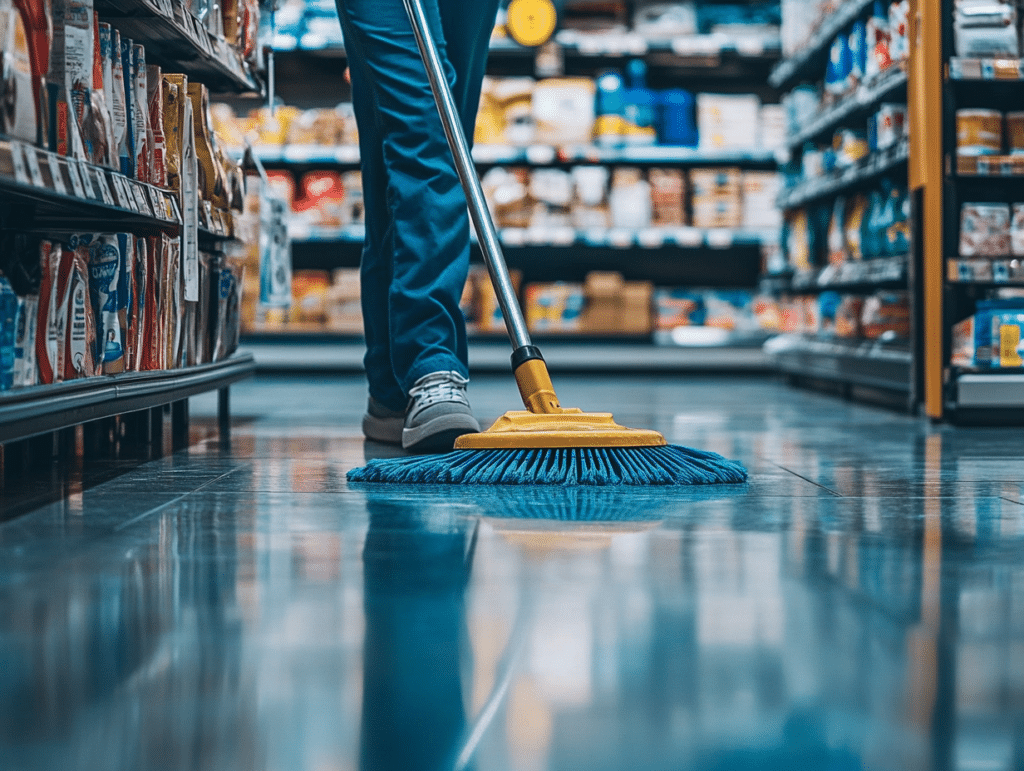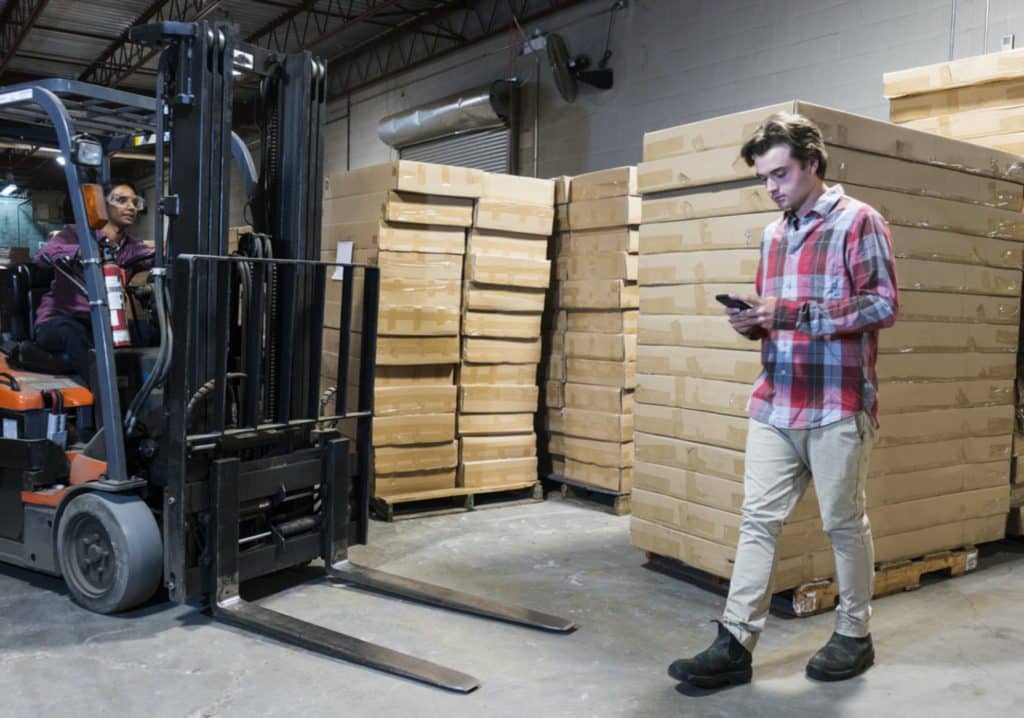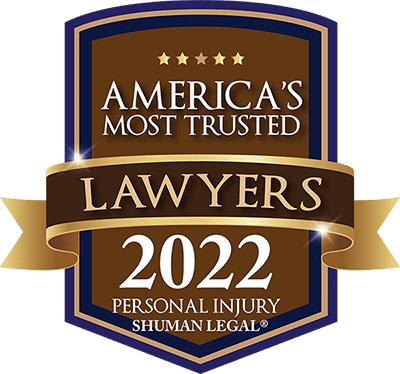Store injury settlements is a topic worth investigating when trying to make sense of a recent in-store accident in Chicago. If you or a loved one were hurt in a retail store accident, the location owners may need to be held accountable for those injuries.
While the slip and fall accident is a common type of retail store negligence, there are many others. Filing a premises liability claim may be the next logical step.
Proving a store was negligent can be a tricky process. Speaking with one of our highly qualified personal injury attorneys at Shuman Legal® can clear away doubts. Discuss your legal options with us. We can review your case for free.
Your search for help ends here. Let’s get started, for FREE.
What Happens When You’re Injured in a Store?
Running in to buy a few groceries should be as easy as it sounds. You shouldn’t have to risk your life to run a simple errand. Specific regulations and codes are set by government agencies to keep store premises safe.
Trouble ensues when these rules aren’t followed – Property maintenance is neglected. Proper procedures aren’t upheld. Corners are cut. People like you get hurt.
A slip and fall accident happens. You’re injured in a retail store. A premises liability claim needs to be filed. All because the ball was dropped at a store. When accidents that could have easily been avoided occur, the finger points to retail store liability.
The Occupational Safety and Health Administration (OSHA) blames retail store negligence for as many as nine out of 10 customer accidents.
What do all these facts mean for you? If you think a store may be negligent for your retail store accident, proving fault may fall on your shoulders. Could the premises liability claim be large? Are there significant injuries? The complexity of this kind of case can often be best handled by an experienced personal injury attorney, like our founder, Marc J. Shuman.
Navigating Through Retail Store Territory
Think you were injured in a retail store, but aren’t sure because of the location where the accident occurred? Where exactly does the store begin and end?
The entire building the store takes up is considered the store: aisles, checkout lanes, restrooms, customer service area, kiosks, dressing rooms, and entryways.
Surrounding exterior areas that border the store are usually part of the store as well. Examples are sidewalks, parking lots, seating areas, and garbage bin storage.
When multiple retailers share common areas (like a mall) the liability falls on the collective body or company. This corporation is also responsible for maintaining a duty of care in these areas.
Have you been Injured at a store?
Steps to Take if You’re Injured in a Retail Store
Process what just happened. Then gather facts. You may not even need all of this information, but cover your bases by getting it now. If injured in a retail store accident, take these immediate steps before leaving the store.
- Tend to your injuries. Your health is the top priority at this point. Take stock of how you’re feeling. Give yourself a visual once over. If serious injuries have occurred, dial 9-1-1. Wait for first responders. It’s critical that you get medical treatment after any accident because far too many times serious injuries are not noticed right away. If you feel alright, be sure to move slowly. Ask for assistance if need be. Dizziness and lightheadedness can occur after an accident – especially if you’ve hit your head and are suffering from a potential concussion.
- Speak with the store manager. The on-duty manager should write an incident report stating how your injury occurred. This record usually includes accident details, injuries sustained, and your contact information. After going through a retail accident in Chicago, especially a painful one, you may feel dazed. Take a minute to compose yourself so you don’t imply you’re at fault. Take a hard pass at saying things like, “I shouldn’t have been walking so fast,” or “I’m such a klutz.” Don’t give any ammunition that can be used against you later. Keep the tone of the incident neutral. Just state what happened when you were injured in a retail store. Don’t respond if you feel questions are leading you to specify the accident’s cause.
- Read documentation. Once the report is drafted, be sure to read it over thoroughly. Note any omissions. Correct any inconsistencies. If asked to sign a statement, be sure to read everything over well. Make sure facts are listed about the incident, not opinions. If you feel too shaken up to carefully read over, don’t sign anything. Unsure about signing a document? DON’T SIGN IT! Your attorney can advise you on what to do after reviewing such documents. Some store policies may try passing off a liability release as part of the
incident report paperwork. Signing this release prevents you from filing a premises liability claim against them. Sneaky, right? - Gather intel. Request a copy of everything you helped write like the incident report. Store policies are in place to protect the store. Managers will often ask for your contact information, explaining that their insurer will get in touch. Change the dialog. Ask for the store’s insurance information. While such requests may ultimately be denied, try to at least get the name of the insurance company for your records. Does the store have security cameras? If so, request taping footage from your retail accident in Chicago.
- Get witness accounts. Use this opportunity to speak with anyone who witnessed the incident. Eyewitnesses can make or break a premises liability claim, so getting their contact information is key. Reach out to witnesses you don’t know and who aren’t store employees. Neutral witnesses have nothing to lose from telling the truth, so their testimonies are important. Politely ask witnesses to recount what they saw in writing. Get them to sign and date their accounts. Collect their contact information.
- Take pictures. Snap some shots of the scene with your cell phone as soon as possible. Don’t wait until everything is cleared away from the incident. These pictures can later tell a story of what happened to you; they can also show retail store liability. Take landscape shots to show scenes from afar. Zoom in to show setting details. Take a video to show the steps leading up to your retail accident in Chicago.
- Point out what caused the accident. The sooner you can alert staff members about what led to the incident, the sooner they can remedy the problem. This step helps keep others from enduring the same trauma you just did.
Is a Store Liable for a Customer Injury?
Holding a store accountable for a slip and fall accident injury means showing how store owners failed to keep you safe. Retailers are responsible for maintaining a duty of care to every person who enters.
Store owners and operators must do everything within reason to protect everyone while they’re on the premises: personnel, customers, potential customers, delivery drivers, and vendors. Invitees are also included. An invitee is anyone on store grounds for the purpose of conducting business.
A retail store accident can easily happen when those in charge of a store fail in their duty of care. Damages resulting from this failure may be filed under a premises liability claim. Accidents may involve improper maintenance, lack of lighting, security issues, too few signs, and lazy or misguided staff.
Have you experienced a retail accident in Chicago? You can seek compensatory damages from the store. Such compensation may include medical costs, repair or replacement of personal items damaged during the incident, and lost wages. Depending on the scope of the accident, getting compensated for pain and suffering may also be up for grabs.
Leaving the Scene of Your Retail Store Accident: Now What?
Once all the fuss is over at the store, there are a few steps you can take to protect yourself and solidify your premises liability claim.
- Consult a medical professional. Even if the accident may not appear serious, a physician may be able to point out potential issues that could arise. Internal bleeding, infections, and concussions are all examples of dangerous conditions that could stem from a retail store accident. Having a record of injuries as they line up with the date of the incident is critical. Medical proof of your injuries is hard for a store’s legal team to dispute. If injuries are serious, consider speaking with an attorney for legal advice. An insurance claim may need to be filed.
- Consider if the store is to blame. Sometimes freak accidents happen; retail store liability is not to blame for every incident. Mull over the following:
- Were dangerous conditions to blame for your accident?
- Should management have known about these conditions?
- Could managers have done something within reason to improve conditions or post signage pointing out potential dangers?
If you answered “yes,” to any of the questions above, then a store could be considered negligent for your accident.
Legal Tip: Even if you or someone else did anything that may have contributed to the cause of the accident, the retail store is still typically liable.
- File an insurance claim. When retail store liability is evident, filing a claim can be fairly simple. Large chain stores have insurance companies that can easily handle such situations. These scenarios work best when there are only minor injuries and the compensation you seek is limited. Send a letter stating your demands along with copies of supporting documentation to the store’s insurance company. Legal Tip: When figuring out your damages, use this basic guideline. Multiply accident-related expenses by two or three. The resulting total will cover a reasonable amount of pain and suffering plus medical costs and lost wages for minor injuries.
Preparing to File Your Premises Liability Claim: Understanding Store Injury Settlements
In order to get the most out of your store injury settlement, you need to keep good records. Put every piece of incident-related documentation into a file. Be sure to include:
- Accident-related medical reports
- Proof of lost wages (W-2, a letter from employer, pay stubs, etc.)
- Receipts for injury-related expenses such as Uber fares, out-of-pocket medical costs, and ambulance rides
- A personal account of how you were injured in a retail store
- Photos of the scene, your injuries, and the store
- Store incident report
- Store insurance information
- Surveillance footage
- Witness accounts and contact information
- Video of the accident scene
Have you been Injured at a store?
Common Ways Retail Store Negligence Injuries Occur
A retail store accident can be anything from a bruised pinky finger to a major slip and fall accident. As long as there are people, there will be different types of injuries occurring in stores. While anything is possible, accidents involving the following are more common than others.
- Carts. Customers can lose control of malfunctioning carts. This problem can cause you to be injured in a retail store.
- Clutter. Stacks or crates of merchandise, boxes and other items left unattended in aisles create a hazard. Falls, trips, and other injuries may occur because of these obstructions.
- Elevators. When an elevator malfunctions, it can be catastrophic.
- Escalators. These moving stairways can present significant dangers to small children who cannot judge distance as well as adults.
- Fallen Items. When something falls on the floor, it can become dangerous. Anything from banana peels to cardboard fragments can cause a slip and fall accident.
- Flooring. Ripped carpeting, broken tiles, and loose thresholds can cause a slip and fall accident.
- Lighting. Poorly lit areas like parking lots and stairwells can make it hard to stay safe. The result can be a retail accident in Chicago.
- Security. Attacks can happen in stores that may not have adequate security.
- Sidewalks. Walkways that lead into a store must be maintained so the possibility for slips, falls, and trips is less. Time can cause the pavement to crack, allowing tree roots to make surfaces uneven. Snow must be shoveled. Icy paths must be de-iced.
- Sharp Objects. Some displays, shelves, or even merchandise can be sharp. Such tips can snag clothing and lead to a nasty fall. Other times people may get painful cuts or abrasions from these jagged edges.
- Shelving. When items are not properly stacked on shelves, they can fall from way above. The same goes for the actual shelves. An entire shelving unit could topple down onto customers or just the merchandise- either way, it will hurt.
- Spills. Something as simple as melted ice can lead to a slip and fall accident. Store management must ensure every single spill is cleaned up quickly. Signs should be posted until areas are safe and dry to help prevent accidents.
- Stairs. Missing steps, loose stair treads, and wobbly landings can all lead to trouble. Absent or incomplete handrails and unstable banisters are also accidents waiting to happen.
Legal Tip: Having trouble determining if retail store negligence was to blame for your accident? Ask yourself, “Could store managers have done something within reason to prevent the accident from happening?” If the answer is “yes,” then retail store liability could be in question.
Experience a Serious Retail Accident in Chicago? Speak to an Attorney about Your Store Injury Settlement
Problematic medical conditions can result from major store accidents. Bruising of the brain, spinal injuries, pregnancy complications, and many more issues can arise after what was meant to be a simple trip to the store.
These retail store negligence cases are not so easily dealt with, as store insurance companies may be unwilling to pay for these high-dollar damages. Insurance premiums are at risk of being raised. Retailers also don’t want to tarnish their reputations. Admitting serious fault to a retail store accident can make store owners feel as though they’ll look negligent in the public eye.
These retail store liability cases can bring out the claws. Insurance companies will likely argue that you are at least partially responsible for your retail accident in Chicago.
Contacting a skilled personal injury lawyer can help. Getting a professional’s point of view provides insight. It’s best to know how strong of a case you have before spending more time and effort. Will you be able to prove the retailer was negligent? Your attorney can find out.
Shuman Legal understands how big insurance companies work. We anticipate attempts to place the blame on you, and we’re ready to pounce. We develop a strategy to keep your retail store accident case on point.
Retaining a qualified lawyer can be the first step toward winning damages in a retail store liability case. Rest easy when a reputable law firm like Shuman Legal is on your side. Your attorney takes on the stress of fighting with a retail store’s insurance company on your behalf.
When you hire Shuman Legal, you put our knowledge and experience to work for you! We understand that getting injured in a retail store can be an ordeal. Our team members guide you through this tough situation to come out on top, and that means getting maximum compensation for you!













